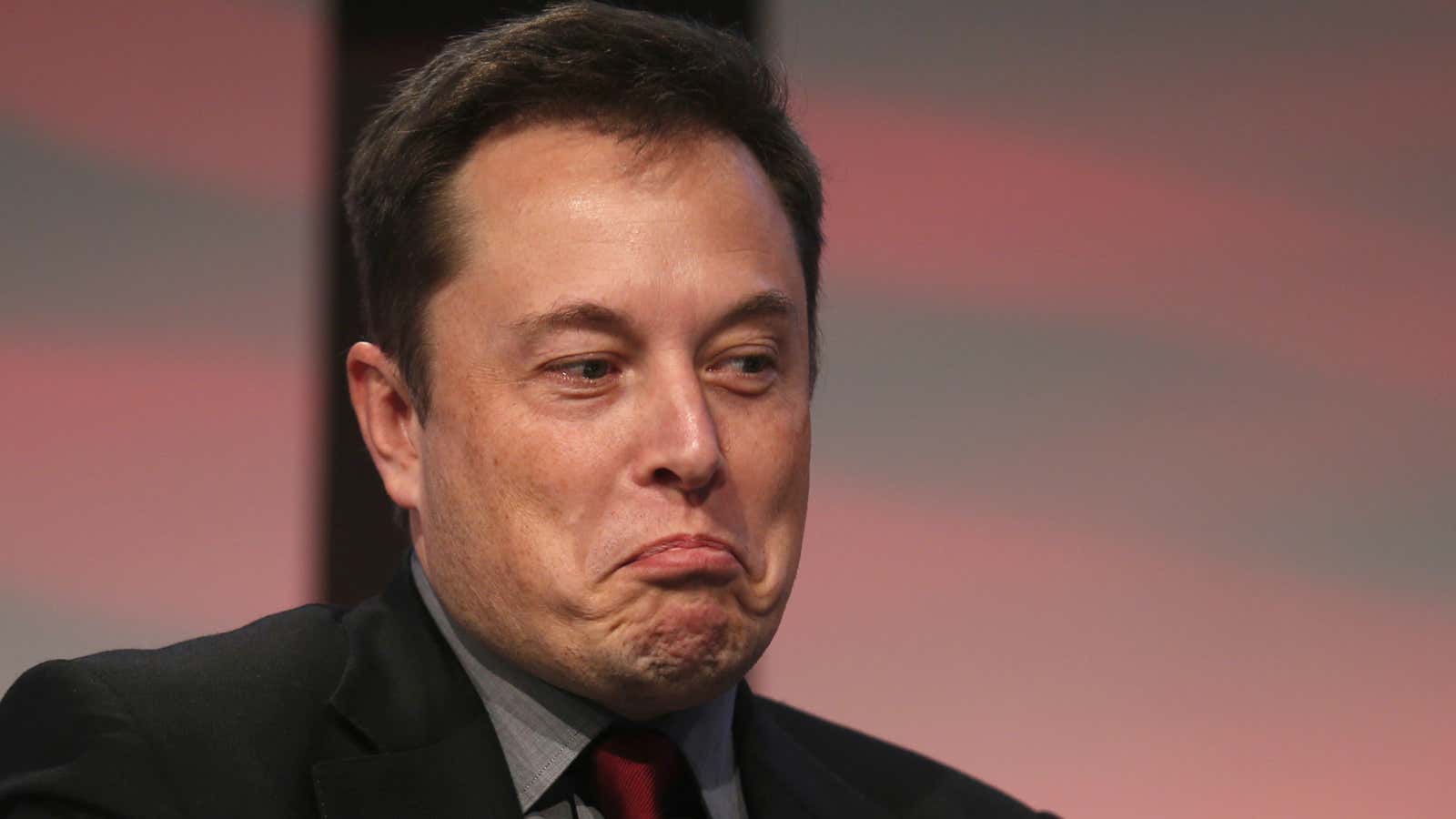When Tesla CEO Elon Musk planned his company’s India debut for summer 2017, it was a tall order. The carmaker had yet to set up dealerships and service centers, and its plan to install a cross-country network of superchargers was far from being realized. Moreover, Tesla’s trademark autopilot feature seemed ill-prepared for Indian roads plagued by poor infrastructure, deplorable driving skills, and swarms of reckless pedestrians.
Three months after that announcement, Musk himself has identified another roadblock: the country’s “Make in India” push which requires foreign companies to source at least 30% of their products locally. For Tesla vehicles, “the supply doesn’t yet exist in India to support that,” Musk tweeted on Monday (May 22).
One Twitter user followed up by asking prime minister Narendra Modi to “reconsider local sourcing norms“ for Tesla.
Swedish furniture giant Ikea and iPhone-maker Apple have both tried—and failed—to circumvent India’s sourcing requirements by getting a waiver. But Tesla might stand a better chance: Its “state-of-the-art” and “cutting-edge” cars align with the country’s clean-energy goals. Already, Tesla is providing solar energy in rural areas in India and the advent of electric cars could help the country curb its serious pollution problem. However, even a waiver would only buy Tesla a three-year reprieve from Make in India rules.
Tesla did not respond to a request for comment.
Electric cars make up less then 5% of India’s electric-vehicles market, dominated by scooters. The government is now vying to make all vehicles in India electric by 2030. Another possible hiccup? When Tesla Model 3 bookings opened in India last March, only the country’s elite were able to fork out the over $1,000 it needed.
